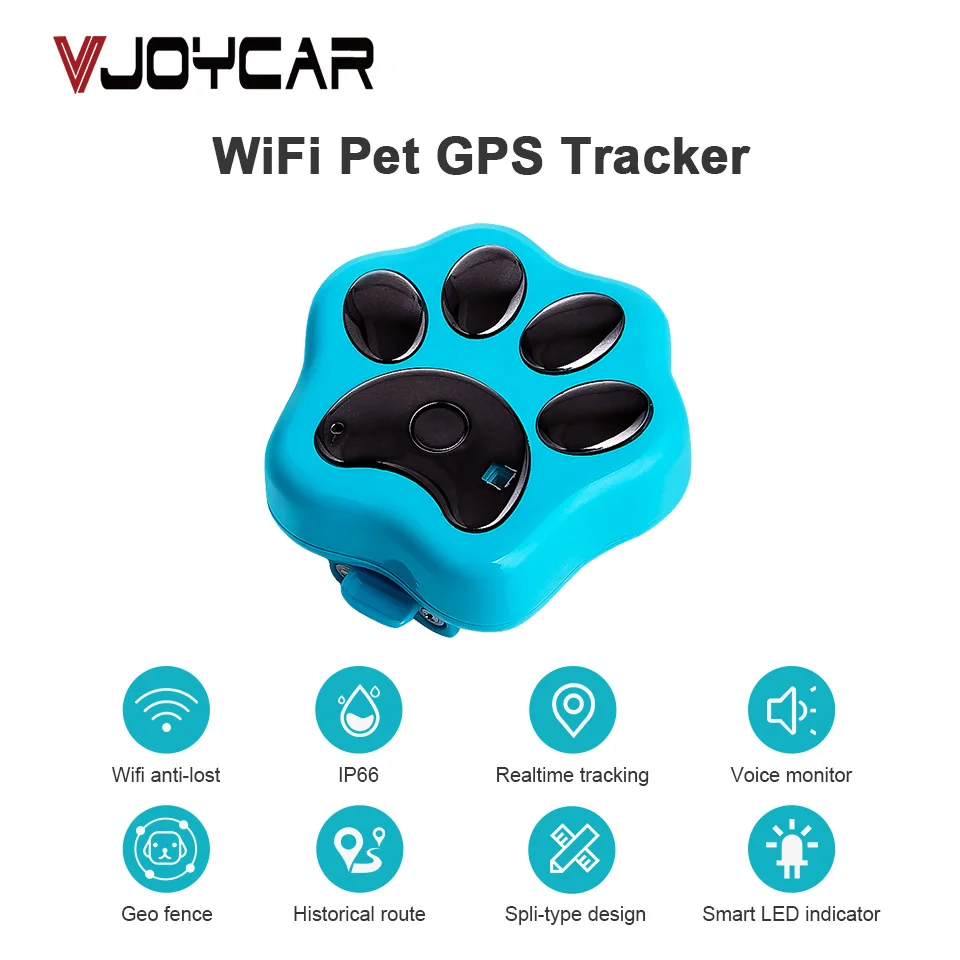Why Every Dog Owner Needs A Dog GPS Tracker Chip
As a responsible dog owner, you want to ensure your furry friend stays safe at all times. A dog GPS tracker chip is one of the most effective tools available to help you locate your pet in case they wander off or get lost. This advanced technology offers peace of mind by allowing you to track your dog's location in real time, no matter where they are.
With the increasing number of pets going missing each year, it's crucial to have a reliable solution in place. According to the American Humane Association, around 10 million pets are lost annually in the United States alone. A dog GPS tracker chip can significantly increase the chances of reuniting with your beloved pet quickly.
In this comprehensive guide, we'll explore everything you need to know about dog GPS tracker chips, including how they work, their benefits, and factors to consider when choosing the right device for your pet. Whether you're a new dog owner or looking to upgrade your pet safety measures, this article will provide valuable insights.
- Kamala Harris Holds First Solo Interview As Democratic Presidential Nominee
- Iain Armitage Net Worth
- Sheryl Underwood Weight Loss Surgery
- Is Kylie Jenner White
- Tokyo Toni Real Name
Table of Contents
- Introduction to Dog GPS Tracker Chips
- How Dog GPS Tracker Chips Work
- Benefits of Using a Dog GPS Tracker Chip
- Types of Dog GPS Trackers
- Factors to Consider When Choosing a Dog GPS Tracker
- How to Install a Dog GPS Tracker Chip
- Cost Considerations for Dog GPS Tracker Chips
- Privacy and Security Concerns
- Alternatives to Dog GPS Tracker Chips
- The Future of Dog GPS Tracker Technology
Introduction to Dog GPS Tracker Chips
A dog GPS tracker chip is a small device that uses global positioning system (GPS) technology to track your pet's location. These devices have become increasingly popular among pet owners who want to ensure their dogs' safety. Unlike traditional microchips, which only provide identification information, GPS trackers offer real-time location updates.
Why Are Dog GPS Trackers Important?
The importance of dog GPS tracker chips cannot be overstated. They provide a safety net for pets who may wander away from home or get lost during outdoor activities. Studies show that dogs equipped with GPS trackers are more likely to be found quickly, reducing stress for both owners and pets.
Common Misconceptions About Dog GPS Trackers
Some people believe that dog GPS tracker chips are only necessary for high-risk situations or specific breeds. However, any dog can benefit from this technology. It's a proactive approach to pet safety that every owner should consider.
- The Beatles Walking Across The Street
- Scott Hall Death Cause
- How Trump Wanted To Nuke Storm Eye
- Who Sings The Song Hey What Going On
- Who Won American Idol
How Dog GPS Tracker Chips Work
Understanding the technology behind dog GPS tracker chips is essential for making an informed decision. These devices use a combination of GPS satellites, cellular networks, and sometimes Bluetooth technology to pinpoint your dog's location.
Key Components of a Dog GPS Tracker
- GPS Receiver: Captures signals from satellites
- Cellular Module: Communicates with mobile networks for location updates
- Battery: Powers the device and determines its operational lifespan
When activated, the tracker sends location data to a smartphone app or web platform, allowing you to monitor your dog's movements in real time.
Benefits of Using a Dog GPS Tracker Chip
The advantages of dog GPS tracker chips extend beyond simple location tracking. Here are some key benefits:
- Real-time location updates
- Geofencing capabilities to set safe zones
- Battery life notifications
- Waterproof and durable design
These features contribute to a safer environment for your pet and provide peace of mind for you as an owner.
Types of Dog GPS Trackers
Not all dog GPS tracker chips are created equal. There are several types available, each with its own set of features and benefits:
1. Collar-Based Trackers
These trackers are integrated into dog collars, making them easy to use and maintain. They are lightweight and comfortable for dogs to wear.
2. Implantable Chips
Implantable GPS chips are inserted under the dog's skin, similar to traditional microchips. They are more permanent but may have limitations in functionality.
3. Wearable Devices
Wearable GPS trackers can be attached to harnesses or other accessories. They often come with additional features like activity monitoring.
Factors to Consider When Choosing a Dog GPS Tracker
Selecting the right dog GPS tracker chip involves evaluating several factors:
- Battery life and charging requirements
- Compatibility with smartphones and operating systems
- Accuracy and range of location tracking
- Additional features like health monitoring
Researching these aspects will help you find a device that meets your specific needs and budget.
How to Install a Dog GPS Tracker Chip
Installing a dog GPS tracker chip is a straightforward process. For collar-based and wearable devices, simply attach the tracker to your dog's collar or harness. Implantable chips require a visit to a veterinarian for proper installation.
Tips for Proper Installation
- Ensure the tracker is securely fastened
- Test the device before letting your dog roam freely
- Register the tracker with the manufacturer's app
Following these steps will ensure your dog GPS tracker chip functions optimally.
Cost Considerations for Dog GPS Tracker Chips
The cost of dog GPS tracker chips varies depending on the type and features. Prices typically range from $50 to $200 for the device itself, with additional subscription fees for data services. Some manufacturers offer bundled packages that include both the device and service plans.
Value for Money
While the initial investment may seem significant, the long-term benefits of a dog GPS tracker chip far outweigh the costs. Consider it an investment in your pet's safety and well-being.
Privacy and Security Concerns
With any tracking technology, privacy and security are important considerations. Dog GPS tracker chips use encrypted data transmission to protect your pet's location information. It's crucial to choose a reputable manufacturer that prioritizes user privacy.
Best Practices for Data Security
- Use strong passwords for your tracking app
- Regularly update software and firmware
- Be cautious when sharing location data with others
Implementing these practices will help safeguard your pet's information.
Alternatives to Dog GPS Tracker Chips
While dog GPS tracker chips are highly effective, there are alternative solutions for pet tracking:
- Traditional microchips for identification purposes
- RFID tags for short-range tracking
- Bluetooth-based trackers for nearby location monitoring
Each option has its own advantages and limitations, so it's important to evaluate them based on your specific needs.
The Future of Dog GPS Tracker Technology
As technology continues to evolve, the capabilities of dog GPS tracker chips are expanding. Future advancements may include:
- Improved battery life and charging options
- Enhanced accuracy and range of tracking
- Integration with smart home systems
These innovations will further enhance the safety and well-being of our beloved pets.
Conclusion
In conclusion, dog GPS tracker chips offer a reliable and effective solution for pet owners concerned about their dogs' safety. By understanding how they work, evaluating different types, and considering important factors, you can choose the right device for your pet. Remember to prioritize privacy and security when using these trackers.
We encourage you to share your thoughts and experiences with dog GPS tracker chips in the comments below. Your feedback helps other pet owners make informed decisions. For more information on pet safety and technology, explore our other articles and resources.
Article Recommendations
- What Ethnicity Is Vanessa Bryant
- Is Gladiator 2 A Sequel
- What Is The Coquette Aesthetic
- Michael Jordan Disapproves Of Larsa Pippen
- Where Does Jana Love Island Live



Detail Author:
- Name : Fermin Kuhn
- Username : kamryn.leffler
- Email : luella.yost@yahoo.com
- Birthdate : 1991-12-16
- Address : 68874 Robert Forges East Johann, IN 41718
- Phone : +1-248-319-0606
- Company : Kulas, Harris and Hirthe
- Job : Forming Machine Operator
- Bio : Dolorum earum et omnis tempora asperiores nihil nesciunt. Sunt omnis dolores qui omnis modi at. Ipsa eos unde corporis.
Socials
tiktok:
- url : https://tiktok.com/@audie_gleichner
- username : audie_gleichner
- bio : Quos eum magni impedit sit quae explicabo suscipit.
- followers : 6260
- following : 1298
facebook:
- url : https://facebook.com/audie6306
- username : audie6306
- bio : Delectus placeat expedita ad ut. Est voluptatem in nihil doloribus mollitia.
- followers : 4755
- following : 490
twitter:
- url : https://twitter.com/audie.gleichner
- username : audie.gleichner
- bio : Enim id mollitia nihil sit voluptatibus. Unde ullam dolor non nam qui.
- followers : 218
- following : 2817
instagram:
- url : https://instagram.com/audie.gleichner
- username : audie.gleichner
- bio : Eos quisquam neque ut ipsa ab. Soluta ab illum aperiam quasi cumque delectus quia ut.
- followers : 4969
- following : 2344